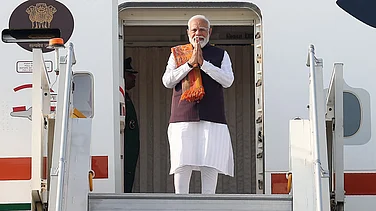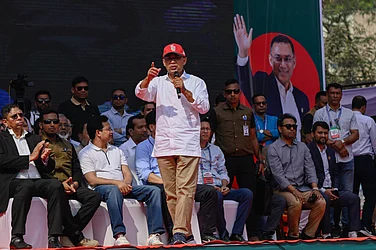In a series of tweets on Friday, Pakistan's former prime minister Imran Khan voiced his disapproval of the joint statement issued by India and the United States during Prime Minister Narendra Modi's ongoing state visit to America. Khan boldly accused Pakistan of being reduced to a mere "promoter of cross-border terrorism in India and nothing more."
The joint statement, which followed extensive one-on-one meetings and delegation-level talks between Prime Minister Modi and US President Joe Biden on Thursday, called on Pakistan to take action against the perpetrators of the 26/11 Mumbai attacks and the Pathankot attacks, according to PTI
During his address to the Joint Meeting of the US Congress, Prime Minister Modi asserted the importance of resolute action against terrorism, leaving "no ifs or buts." Although not naming Pakistan directly, his remarks were seen as a veiled attack on the country, emphasizing the need to hold state sponsors of terrorism accountable.
Imran Khan, also the chief of the Pakistan-Tehreek-e-Insaaf (PTI) party, directed criticism towards the current coalition government Pakistan Democratic Movement (PDM) and former Army chief Gen Qamar Javed Bajwa for their alleged false claims and frequent visits to the US.
Questioning the actions of Gen Bajwa and the PDM, Khan posed a crucial query regarding Pakistan's deteriorating international image, stating, "After a year in government and countless trips of Pakistan's FM to the US, the joint India/US statement reduces Pakistan to a promoter of cross-border terrorism in India and nothing more."
Accusing Gen Bajwa and the PDM of wrongly claiming that he had isolated Pakistan internationally, Khan raised concerns about the diminishing relevance of the nation on the global stage. He went on to express his distress, stating that the imported government experiment had not only rendered Pakistan irrelevant internationally but had also contributed to the collapse of democracy, rule of law, and the overall economic and institutional structure.
Imran Khan, who was removed from the position of Pakistan's premier in April of the previous year following a successful no-confidence motion led by the Pakistan Muslim League-Nawaz, continues to scrutinize the current state of affairs and Pakistan's standing on the international front.


























